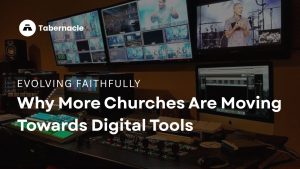Home » What is a Good Sermon?
What is a Good Sermon
Learn how to create sermons that deeply resonate with your congregation by focusing on preparation, divine guidance, and understanding their spiritual needs.

Table of Contents
As Pastors, life always tends to be buzzing with so many to-dos and responsibilities. Your cup seems to overflow with shepherding, teaching the Word, counseling, conflict management and reconciliation, and even administration.
Every Pastor would be able to, at one point or another, confess that amidst these responsibilities that he or she fulfills, preparing and delivering a “good” sermon sometimes renders itself as one of the most strenuous tasks, even though teaching and guiding sheep in the Word of God is the central responsibility.
But is there a “good” sermon? If so, what really is a “good” sermon?
Step back a little and think… Has there been a time, perhaps even in the recent past, when members from your congregation may have taken the time to thank you for a particularly “good” sermon?
Now, take another step back and look back at your own life, into your formative years of becoming a follower and disciple of Jesus.
Is there or was there a particular sermon that you are able to recall as a “good” sermon? And why? Why are you able to, even today, recall that particular sermon as being a “good” sermon?
The Impact of a Good Sermon
Apart from other things, the one reason why a particular sermon may have rushed back to your memory as “good” is most likely because you experienced God meeting you at the point of your need through that sermon.
Perhaps, you’d recall being expectant to hear from God on something specific. You were probably already praying about it and waiting in expectation to hear from Him about that particular situation, and that particular sermon spoke right into your situation.
The Nature of the Soil
Just by reflecting on your own experience, you may have identified that a significant part of what makes a sermon “good” is the nature of the soil – the heart of the hearer.
In Matthew chapter 13, Jesus explained that it is the “good” soil in which the seed takes root, grows, matures, and bears fruit.
While the readiness and willingness of the hearer play an important role in whether or not a sermon is perceived as “good,” there is yet another critical aspect to what makes a sermon “good.”
And, this is the nature of the seed itself sown by the sower. This directly touches upon the aspect of whether the Pastor has spent considerable time seeking the Lord to receive the seed to be sown into the hearts of the hearers
But the seed falling on good soil refers to someone who hears the word and understands it. This is the one who produces a crop, yielding a hundred, sixty or thirty times what was sown.
Matthew 13:23 (NIV)
God, who is omniscient, omnipresent, and omnipotent, knows exactly what each and every individual in your congregation is going through and needs to hear. And, He is also the One who has promised that He will instruct the tongue of His servant to know the word that sustains the weary (Isaiah 50).
A “good” sermon therefore is one that has been diligently and prayerfully sought from the Lord to speak into the needs of the sheep entrusted to your shepherding. Maintaining a good rapport and/or relationship with the congregation to have a grasp of their overall needs and experiences especially helps to give direction in seeking the Lord for the seed to be sown.
Questions for Reflection
As you ponder over these thoughts, here are some questions for your reflection
- When was the last time that someone in your congregation told you that the sermon was “good?”
- How do you prepare for your sermons?
- Do you share a good relationship/connection with your congregation?
- Are you aware of the general needs/experiences of the members in your congregation?
- Have you been able to take these specifically to the Lord in prayer to ask Him for the right word to feed and sustain those in your congregation?
FAQs
What is a Good Sermon?
A good sermon primarily hinges on two factors: the readiness and willingness of the hearer to receive the message (the “good soil”) and the preparation and prayerful seeking of the Lord by the pastor (the quality of the seed).
How can I tell if my sermon was effective?
Feedback from your congregation can be a good indicator. If members thank you or share how the sermon spoke to their needs, it’s a sign of effectiveness. Additionally, self-reflection and considering whether you felt guided by the Lord in your preparation and delivery can also help gauge effectiveness.
How does the readiness of the hearer affect the impact of a sermon?
The parable of the sower in Matthew 13:23 highlights that the condition of the hearer’s heart (the “good soil”) is crucial. A willing and prepared heart is more likely to receive the message, understand it, and apply it in their life, resulting in spiritual growth.
Can a sermon be "good" if not every member of the congregation is impacted?
Yes, a sermon can still be “good” even if not every member is impacted. The message may resonate deeply with some while others may benefit at a different time or in a different context. The key is being faithful in seeking and delivering the Lord’s message.
What role does personal reflection play in delivering a "good" sermon?
Personal reflection helps you connect with your own experiences of hearing “good” sermons, reminding you of the elements that made those sermons impactful. This reflection can guide you in crafting messages that are heartfelt and spiritually nourishing.
Get updates delivered to your inbox!

Understanding Legal and Tax Compliances for Churches
Churches in Northeast India are turning to digital tools, from livestreams to apps, to strengthen community connections, engage young congregants and improve church administration. This shift is transforming worship, outreach, and administration in ways that were once unimaginable.

Why more churches are moving towards Digital tools
Churches in Northeast India are turning to digital tools, from livestreams to apps, to strengthen community connections, engage young congregants and improve church administration. This shift is transforming worship, outreach, and administration in ways that were once unimaginable.

Sermon Ideas for Children’s Day
In catering to the youth of this generation, the church must bear in mind that this generation possesses information at their fingertips in unprecedented ways.
Looking for a Software to manage your church?
We'd love to have you try our software!